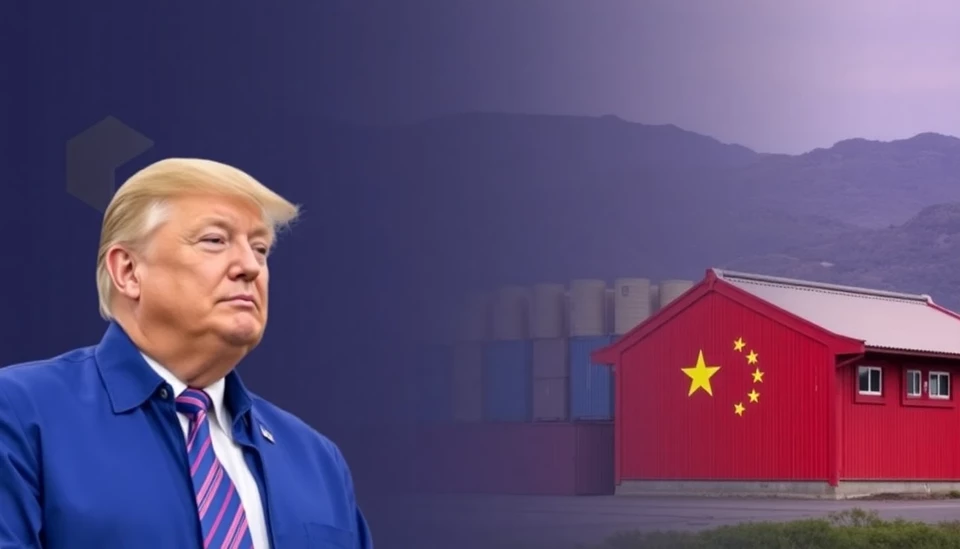
In a diplomatic dance that underscores the complexities of international trade relations, Chinese President Xi Jinping has offered a careful and measured response to recent tariffs imposed by former President Donald Trump. This exchange highlights the precarious position China finds itself in as it navigates the challenges posed by U.S. trade policies while aiming to maintain its economic stability.
The backdrop for Xi's response is a burgeoning trade war that has seen both nations imposing tariffs on each other’s goods, affecting billions in trade. Trump’s tariff measures, initially aimed at addressing what he termed unfair trade practices and intellectual property theft, have undoubtedly put pressure on the Chinese economy, leading to concerns about potential escalation and longer-term economic ramifications for both countries.
Xi’s remarks during a recent forum suggested a dual strategy; he emphasized the importance of maintaining open trade channels while simultaneously advising caution. This careful phrasing indicates that China is acutely aware of its vulnerabilities in the wake of U.S. tariffs. Unlike the earlier years of the trade conflict, when China could afford to adopt a more confrontational stance, the current circumstances reveal a nation with much to lose. Economic indicators show that China’s growth rate is increasingly restrained, and further trade tensions could exacerbate existing challenges.
Furthermore, Xi's moderate tone signifies an effort to reassure both domestic and international markets amid fears of a spiraling trade war. By downplaying aggressive rhetoric and focusing on dialogue, Xi aims to portray China as a responsible global player, contrasting with Trump’s trade hardball approach.
This tempered approach could also be interpreted as a sign of the Chinese leadership’s recognition that the global landscape is shifting. Nations around the world are becoming less tolerant of aggressive trade practices, and Xi’s more diplomatic response suggests an awareness of the broader implications this trade conflict might hold for China’s standing in the international community.
Some analysts are interpreting Xi’s delicate balancing act as indicative of the increasing pressure within China to secure its economic future amidst potential isolationist policies from the U.S. The interplay of tariffs and retaliatory measures creates a climate of uncertainty, which Xi’s government may see as a call for more innovative economic strategies that go beyond simple retaliation.
Moreover, as China approaches 2025—a pivotal year in its economic planning—the leadership seems keener than ever to project stability. It is apparent that Xi’s administration understands its need to foster domestic confidence while also safeguarding international trade partnerships. This strategy not only seeks to mitigate the adverse effects of tariffs but also to position China's economy for the future.
As the world watches, Xi's careful maneuvering becomes crucial in navigating the treacherous waters of trade relations with the United States. The implications of these tariff decisions extend beyond immediate economic impacts; they resonate throughout global markets and influence international trade norms.
In conclusion, the response from Xi Jinping to the ongoing trade tensions illustrates the complex dynamics at play, wherein both sides are treading lightly on a tightrope of diplomacy and economic strategy. China’s recognition of its vulnerabilities underlines that while it wishes to project strength, it equally understands the need for a cooperative approach to avert further economic fallout.
As this story unfolds, the coming months will likely reveal whether Xi’s cautious tactics can sustain China’s economic interests against a backdrop of ongoing U.S. tariffs and broader geopolitical tensions.
#China #TrumpTariffs #XiJinping #InternationalTrade #EconomicStrategy #TradeWar #USChinaRelations
Author: Daniel Foster




